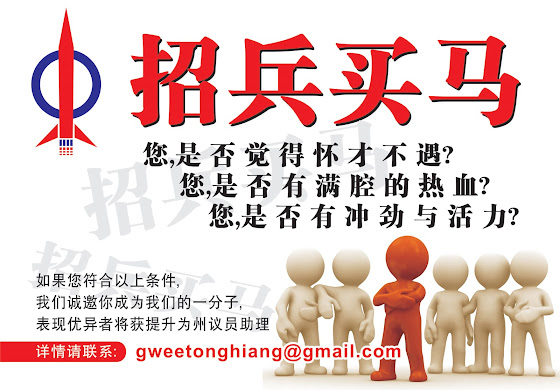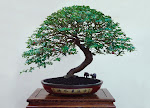 Tunku Abdul Aziz Tunku Ibrahim
Tunku Abdul Aziz Tunku Ibrahim
The Star, Thursday, September 11, 2008
By AZMAN UJANG
KUALA LUMPUR: Malaysia’s most prominent anti-corruption and good governance activist, Tunku Abdul Aziz Tunku Ibrahim, raised many eyebrows recently when he announced his new role as a politician by joining the DAP.
And in an unprecedented move, the DAP instantly appointed him a vice-chairman.
Tunku Aziz, 74, had a distinguished career in the corporate sector before being actively involved in Transparency International, the global coalition against corruption.
He has written and spoken widely on corruption and integrity issues both domestically and internationally and published his book, Fighting Corruption: My Mission.
He also served at the World Bank and in 2006 was invited to establish the United Nations Ethics Office as a Special Adviser to then secretary-general Kofi Annan.
Following are Q & A excerpts of the interview:
Q: Many are surprised that the Tunku Aziz that they know to be someone who is apolitical, who speaks out without fear or favour especially against corruption and for good governance, has decided to be actively involved in politics and to have joined the DAP.
A: No one seemed to be taking all those issues that I have been talking about all these years seriously. Those were very important issues, issues of the day.
And I’ve noticed that over time instead of the political situation in the country getting better, it has in fact grown worse from my perspective. So I decided that I would have to take a more active political interest because I’ve always believed that the future of this country really depends very much on how we deal with outstanding issues and there are many outstanding issues.
It’s all very well to talk about national unity but let’s scratch the surface a little and you would find that there are very serious undercurrents of suspicion, discontent, of a sense of being marginalised or excluded, and these are important issues.
I’ve always believed ever, since I was at school, on the need for a united country. To me the most important thing is loyalty to our country.
That is my No. 1 priority. It doesn’t matter what organisation I belong to, that does not change. I do not support anything which is extra-constitutional because the foundation of our country and our society is really the Constitution.
Q: Now, why did you choose to join the DAP?
A: I joined the DAP because I’ve been watching DAP for more than 20 years. I was highly suspicious of DAP because it seemed to me to be nothing more than an alternative Chinese party, it was chauvinistic.
But over time I’ve also seen that this party has remained steadfast to some of the values that I share, such as the need to fight corruption comprehensively, which has been my life-time concern, and also of course with fighting corruption we are obviously also fighting for transparency, accountability, and I’ve been not just advocating but encouraging companies and people to practise good governance.
And DAP is opening up. The fact that it remains a largely Chinese party, I think, is not their fault. It’s because Malays and other people have not joined the party. They have opened it up, they have declared themselves to be a party for all Malaysians.
It meets my own requirement in terms of the need for Malaysia to be a multi-racial country because we cannot really expect this country to progress divided, we have to unite. But unity can come about only if we develop and adopt policies which are inclusive.
It doesn’t matter what your political affiliations are as these affiliations merely demonstrate an important facet of the democratic system, which is that there is the freedom to be different, to espouse dissenting views. And I hope that the ruling party will accommodate all views provided they are constructive views and they are views that will not hurt the country.
I’m against any politician who, at the slightest hint of any problem in our country, rushes out to the outside world to compare this country with Zimbabwe, for example, and to regard this government as if it has no legitimacy. I think that is wrong. The fact that I belong to a political party does not mean that I’ve surrendered my own personal independence. There are views which I’ve held since I could remember and these views are important.
Q: What are your views on race relations in the country now?
A: As a Malay, naturally I would like to see the Malays being treated as the Constitution intended them to be treated. But I also recognise the fact that we cannot exclude the rights of other races.
While we want to protect the rights of the Malays as provided for under the Constitution, we must also ensure the rights of the non-Malays are also protected. And that really has been the real reason for accelerating my move into the political arena. But having said that, I’m not a political animal. I’m an advocate and activist for a clean (government) and transparency, accountability and for integrity in government.
I would like to see whichever party gets into power, I would like to see that party behave in an ethical way in the management of the country’s affairs because people must not forget that what may look as well within the law or as legal may not necessarily be ethical and that is an important issue.
It’s a real dilemma for someone to say that I’m going to give up my independence which I’ve cherished and valued for years which enabled me to speak without fear or favour.
But now the same message which I’ve been putting out will be looked at in a totally different light, but you know Tunku Aziz the person is still the same man, he hasn’t changed and to me it’s like saying now that you have gone into the political arena and therefore you are different. I’m not different, I’m the same person still believing in all those things which I’ve been promoting.
Q: You spoke earlier about certain things in the country that have not only not improved but have gone from bad to worse. Can you cite some examples?
A: While we have achieved a great deal in terms of development, the question I’ve always asked myself is at what cost. Let’s talk about unethical public behaviour, which seems to be getting worse. We’ve just been reading about more cases of corruption and a flurry of arrests by the Anti-Corruption Agency (ACA).
These are things that you and I have known happen all the while but this merely confirms what we already know. But there is so much rhetoric. There is no government in the world that has not come into power with this flag-waving “we will fight corruption and so on and so forth”. It is not just in Malaysia but I was hoping that we in Malaysia would be different, but I’ve not seen that happening.
Q: Back to corruption, are you encouraged by the ongoing flurry of arrests by the ACA?
A: It is very encouraging because, for years and years, some of us have been saying that the ACA should be made into an independent commission. The ACA has repeatedly said that it was independent. But again, we knew they were not.
It is up to the ACA now to tell the Government this is the form we want the new Anti-Corruption Commission to take. The Government should be listening to the people (on) what kind of ACA we want in Malaysia.
But what I really would like to see is the ACA being given the power, if they have not got it already, to go out to anyone who is suspected of being involved in corrupt practices or anyone who evidently is living beyond his means and say “Sir or Madam, how do you account for this?”, put the onus on that person. But this has not happened.
I tell you if they were only to do this, as Hong Kong is doing or has done, they would have a lot more success. So there is a lot of foot-dragging.
I am convinced the ACA, if you want it to be based on the Hong Kong model which is really the benchmark, I think it should have many of the positive aspects of the Hong Kong set-up, and one of them is the power to go to anyone in the land, whoever, put the onus on them to please account for their assets and wealth. I think that is one thing that would ensure that people will really be frightened to commit corruption.
Q: You are now not only a member of the DAP. Instantly you have been made one of the five vice-chairmen. Did it come as a surprise to you that you straightaway became a vice-chairman?
A: Yes, it did. Because, when I wanted to join the DAP, my intention was simply to join as a member, not to hold any high position, so it did come as a surprise but at the same time I feel that they put me into the policy-making body.
I think that would enable me to influence the way DAP develops in terms of the things I’ve been speaking about but also more particularly to make them become a more Malaysian organisation so that they are not seen as just a Chinese party in disguise or chauvinistic. In fact they must be more Malaysian than Malaysian.
If we are talking about a united, strong, cohesive nation. I think we’ve had 51 years of that to really create the sort of country that the founding fathers had intended it to be. Whether it was Datuk Onn Jaafar, Tunku Abdul Rahman, Tun Abdul Razak, Tun Hussein Onn, that vision which really was the factor that made all these people sacrifice so much. Tun Dr Ismail, for example, and Tun Razak both were unwell; they could have just spent time with their families but they didn’t. Why? Because their vision was for a strong Malaysia, for a Malaysia that is respected internationally.
I’ve always used the phrase, Malaysia to be at the top of the table and not be picking up scraps from the floor. We should be there, we have the capacity to be there. I think we can really develop a strong nation. So we have to come up with ideas, policies which will be seen to be compatible with the aspirations of the people. This is essential.
Q: To balance things up, giving credit where it’s due, what are some of the country’s achievements over the last 51 years of independence?
A: Well, it would not be fair to merely highlight what we see as the negatives. There are definitely lots of positives as well. The country today has achieved development status which many countries are still dreaming about, are envious of. I’ve been asked by Universiti Malaya’s Institute of Policy Studies to give lectures to people from other countries like Sri Lanka, Afghanistan, the Sudan and India, Nepal and I sometimes have a quiet cry.
When they say what a wonderful country Malaysia is, the things that they could only dream about and they always ask you what do you do to achieve this, so successive governments must have done something right. You cannot just criticise them.
But of course what we are talking about is how much better we could all have been. We could have been a truly great and united country if only we had paid more attention to the concerns of our people of all races in a fairer and more just way. That is what this nation should be all about and that’s what our religion is all about. It doesn’t preach unfairness, it doesn’t preach corruption.
 魏宗贤协助诺茜扎清理突发水患后的五脚基
魏宗贤协助诺茜扎清理突发水患后的五脚基  魏宗贤协助玛芝娜清理突发水患后的五脚基
魏宗贤协助玛芝娜清理突发水患后的五脚基 诺茜扎, 麻坡市议会工程师纳芝里, 文打烟区州议员魏宗贤
诺茜扎, 麻坡市议会工程师纳芝里, 文打烟区州议员魏宗贤






























